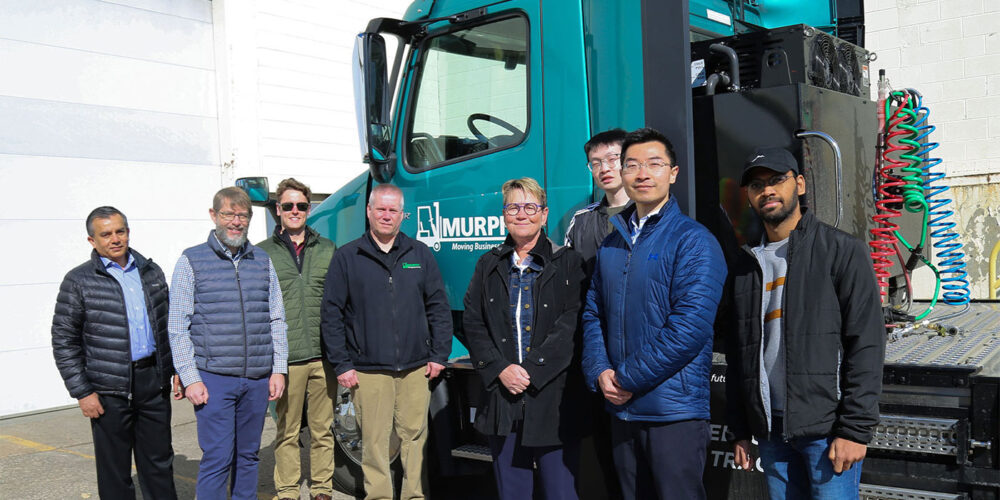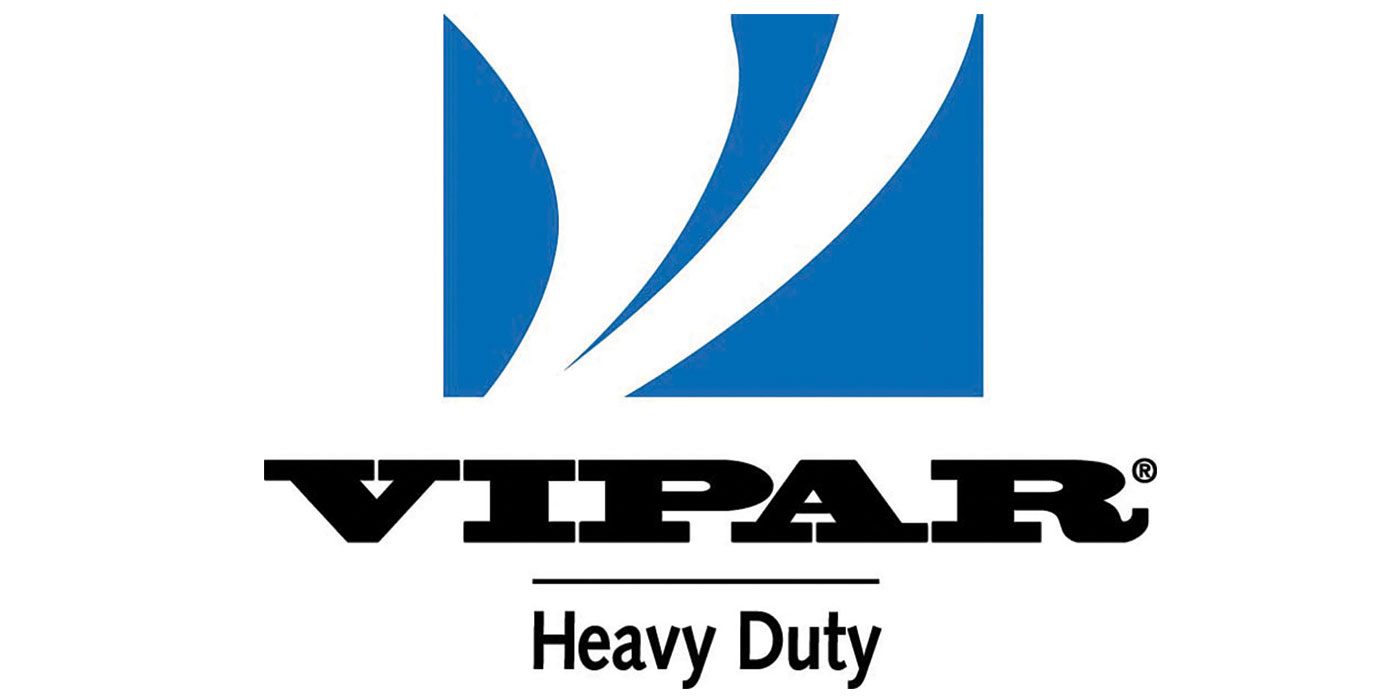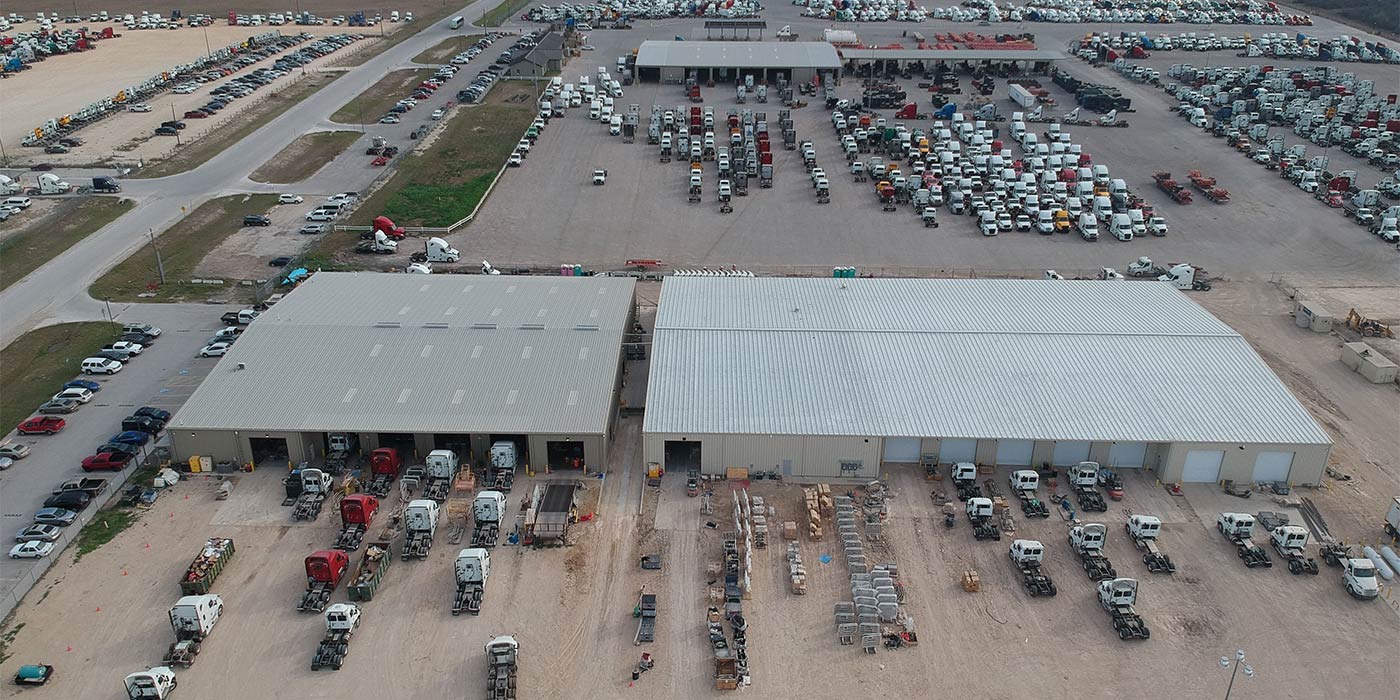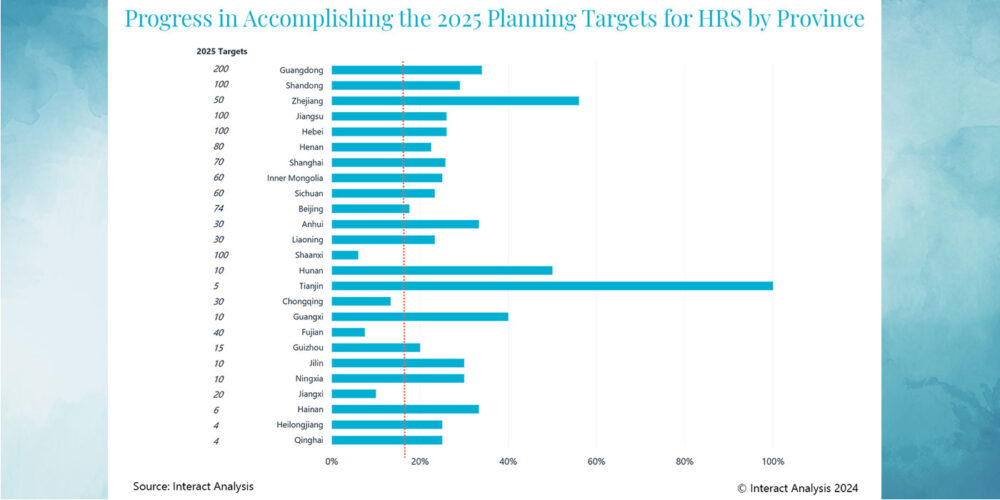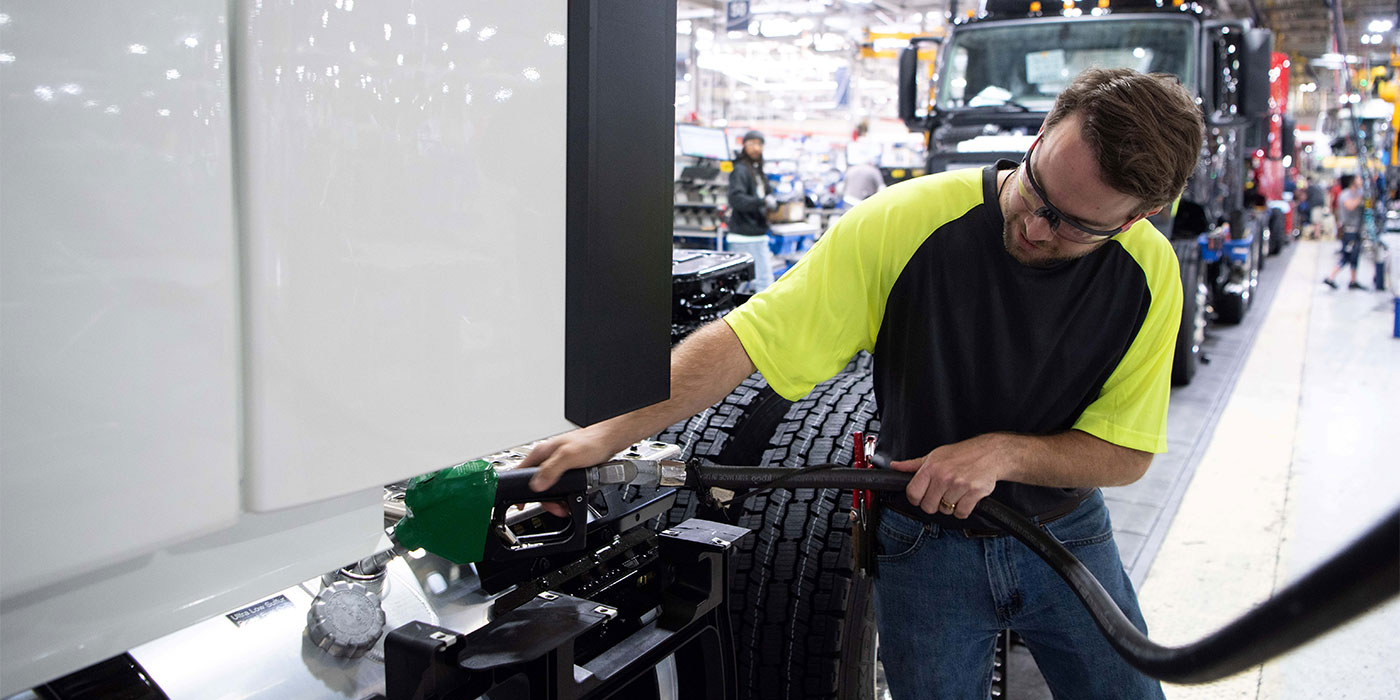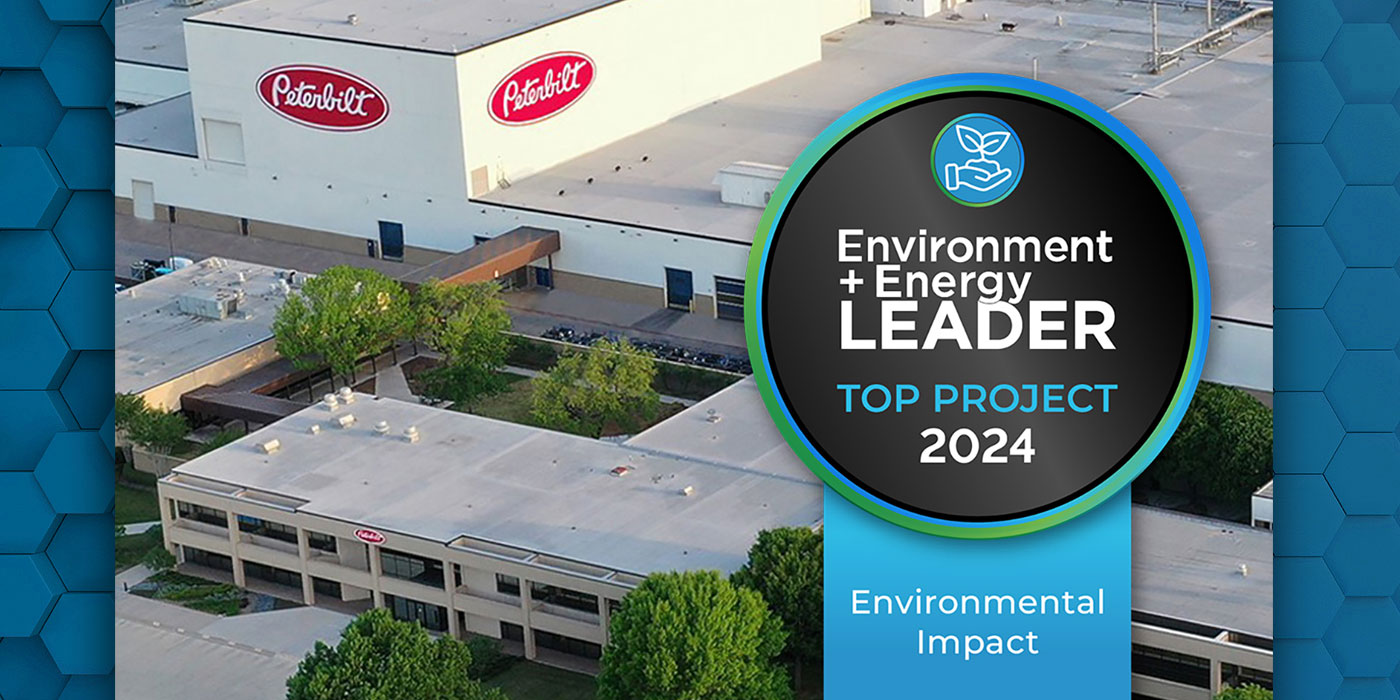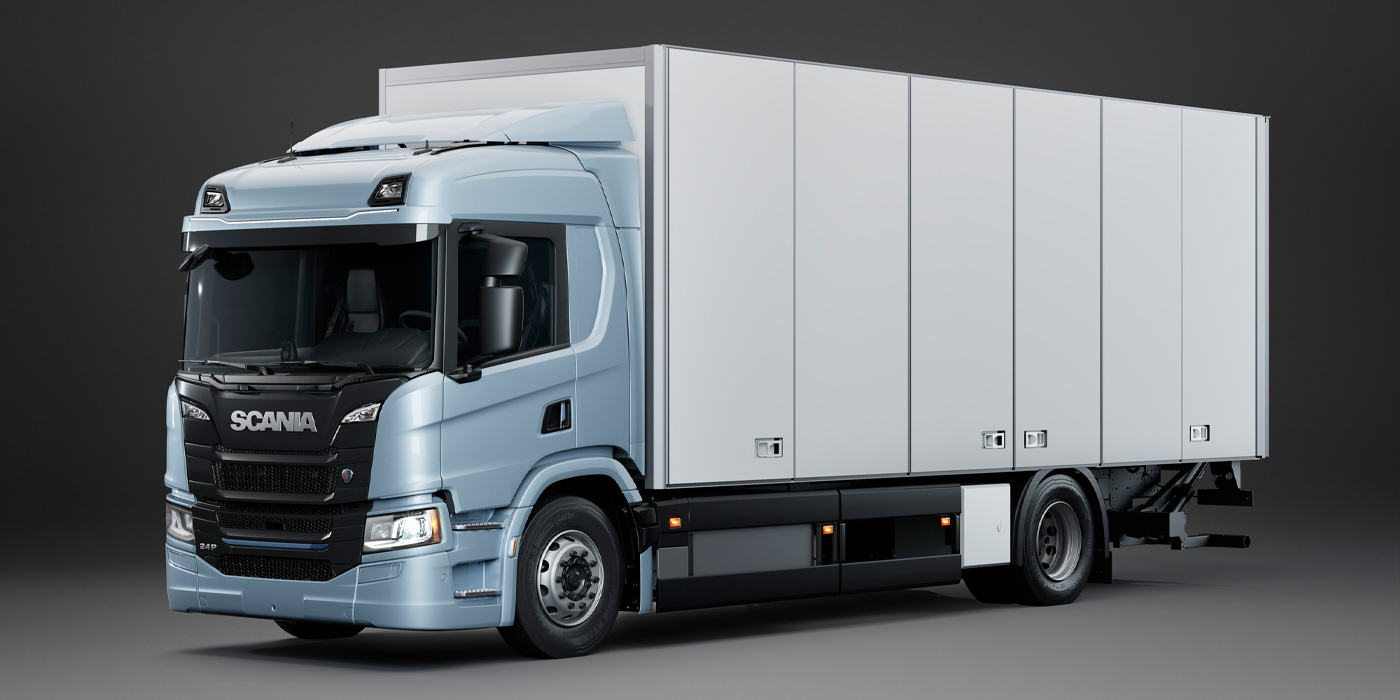The project will track the results of two Volvo VNR Electric engineering trucks with a six-battery configuration that are rated to provide up to 275 miles of range, according to the company. Volvo Trucks is analyzing the battery-electric trucks’ performance on different routes in extreme temperatures with varying terrains and payload weights to better understand the challenges these factors present to help customers improve route planning and optimization.
Murphy and HEB will operate the battery-electric trucks on freight routes that exceed 250 miles in a day utilizing drivers in their fleets who have been trained by the Volvo Trucks electromobility team to utilize regenerative braking and other safe driving practices designed to maximize vehicle range, Volvo said. The VNR Electric trucks will leave the warehouse at the beginning of the day with a 100% state of charge (SOC) and will ideally return near empty (~10% SOC) at the end of their routes to take full advantage of useable energy in the battery.
Heavy-duty battery-electric trucks can experience range reductions during extreme temperatures due to battery chemistry where the chemical and physical reactions in the battery can occur more slowly, reducing the BEV’s range. To combat that, a dedicated Battery Thermal Management System (BTMS) is included with the Volvo VNR Electric model to manage and maintain the optimum battery temperature range. The company notes that the BTMS is a heating and cooling system connected to the batteries with the purpose of avoiding the chemical reaction slow down or potential cell damage in extreme conditions. This in turn provides long life and excellent performance from the batteries under a variety of weather conditions that the vehicle encounters in real world conditions.
In addition to the severe weather testing, UMN has developed an Intelligent Energy Management System (EMS) connected solution tool to help fleets understand how driving style can impact range, as well as how to take advantage of more energy efficient routing and decrease the cost and time required for on-route battery charging. The tool, according to UMN, uses a machine learning-based algorithm to dynamically inform drivers about available range and minimum charging requirements, taking load and ambient conditions into consideration. The EMS also enables higher efficiency and longer range through advanced eco-route planning. To date, the EMS tool has helped Murphy and HEB achieve more than 20% increase in range.
Once the research project in both climates is complete, UMN will publish the results in a series of conference and journal papers, in addition to sharing information with U.S. DOE and Volvo Trucks in the form of a final project report.
The two Volvo VNR Electric trucks participating in the field tests are supported by the Volvo Trucks commercial support teams and are maintained and serviced by Nuss Truck and Equipment, the local Volvo Trucks Certified Electric Vehicle Dealership in Minneapolis, Minnesota.

